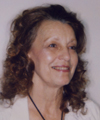Support group forms for glaucoma
patients
by
Heather WoolwinePublic Relations
Say the word glaucoma and some think eye disease, others think blindness, and still others think irreversible. And while all of these things may be true about glaucoma and its many varieties and stages, another thought should cross the mind.
Blindness from glaucoma is preventable.
 Dr. David Lee
Dr. David Lee“Glaucoma is the second leading cause of blindness in the U.S., surpassed only by macular degeneration,” said David A. Lee, M.D., Ophthalmology professor. “And once it causes blindness, there is no treatment that can bring that vision back. But blindness from glaucoma is preventable and early detection is the key.”
To better inform and educate MUSC patients suffering from glaucoma, Lee and Carolyn Cavanaugh, R.N., Ophthalmology, formed a patient support group dedicated to helping those affected by the disease to better understand its course, treatments, and various other topics related to its progression. “We had a great amount of support from Dr. Ed Wilson (Storm Eye Institute (SEI) chairman and glaucoma specialist) concerning the group,” Cavanaugh said. “He’s always so supportive of our patients and initiatives that will benefit them.”
Glaucoma is defined as a group of eye diseases usually caused by increased pressure on the eye, resulting in damage to the optic nerve. Known as the “sneak thief of sight,” it doesn’t usually give many signs of its presence until it’s too late. Only after the progression of the disease has damaged a significant amount of the optic nerve, located in the back of the eye, do people notice the loss of side, or peripheral, vision.
 Carolyn Cavanaugh
Carolyn Cavanaugh“It’s just so sad because by the time people notice that something is wrong with their vision, there may already be some permanent damage done,” Cavanaugh said. “That’s why we started the support group and want to expand it; because we want to increase awareness and community education about glaucoma. My passion is to help people save their sight.”
“It’s quite deceptive in the beginning, because like hypertension or diabetes, you don’t know that you have it until something starts to go wrong,” Lee said. “Once symptoms do start, they can range from difficulty with sight in dim lighting, blind spots in vision, and blurred vision to headaches with pressure and pain in the eye and even nausea and vomiting from sudden increases in pressure to very high levels.”
The support group, now open to anyone who wishes to attend quarterly meetings, will meet next at 12:30 p.m. on July 28 in the SEI Auditorium on the 8th floor of the SEI building. Refreshments will be served and it is free to attend. To register, contact Cavanaugh at 792-4735. Guest speakers provide information on medication costs, the latest treatments, help for family members, and other issues pertinent to glaucoma.
One of the most important things concerning glaucoma prevention is the yearly eye exam.
Lee and Cavanaugh agreed that there is no better way to catch glaucoma at its earliest stages and prevent devastating vision loss. In general, all individuals 60 and over should begin these regular check-ups, while African-Americans over age 40 or people with a family history of glaucoma should start the yearly exams as their populations see a higher incidence of glaucoma.
Several risk factors are associated with glaucoma, including old age, a positive family history of glaucoma, diabetes mellitus, high blood pressure, and certain types of near or far sightedness. Various ethnicities remain at higher risk for certain types of glaucoma, but everyone benefits from yearly eye exams to ensure that glaucoma isn’t allowed to sneak away with the gift of sight.
There are three major courses of treatment for those suffering from glaucoma. The first and most common route is to introduce the patient to medication, usually in the form of eye drops meant to lower the pressure on the eye. If medication is not effective or the patient prefers something different, laser treatment might become an option. Additionally, surgery that creates a window in the eye wall, to bypass the blocked fluid draining mechanism in the eye that is not functioning properly, lowers the pressure in the eye to prevent progressive vision loss.
“Some people don’t like the idea that if they have glaucoma, they must take medication forever, and that’s simply not true,” Lee said. “There are other options to consider. Others believe that with the diagnosis of glaucoma comes a sentence of automatic total blindness and that’s not true either. While we still hope and look for a cure for glaucoma, our current treatments are good alternatives and can stop or slow the progression of the disease to a manageable pace to maintain vision during a person’s lifetime. We are presently unable to restore vision that is lost from glaucoma, but our research is aimed to protect and regenerate the optic nerve and recover vision in the future. We are also developing microelectronic devices and instruments to continuously measure the pressure in the eye and assist patients with using their eye drops to treat glaucoma.”
In addition to the glaucoma support group, the SEI also instituted the Glaucoma Awareness Project in 1998 through the efforts of Wilson and Cavanaugh to facilitate and perform free community screenings for those at high risk and to educate the general population about glaucoma. The response to the project continues to thrive each year.
Friday, July 22, 2005
Catalyst Online is published weekly,
updated
as needed and improved from time to time by the MUSC Office of Public
Relations
for the faculty, employees and students of the Medical University of
South
Carolina. Catalyst Online editor, Kim Draughn, can be reached at
792-4107
or by email, catalyst@musc.edu. Editorial copy can be submitted to
Catalyst
Online and to The Catalyst in print by fax, 792-6723, or by email to
petersnd@musc.edu
or catalyst@musc.edu. To place an ad in The Catalyst hardcopy, call
Community
Press at 849-1778.